- Get link
- X
- Other Apps
- Get link
- X
- Other Apps
For 2010 incarceration rates by raceethnicity in each of the 50 states see our report Breaking Down Mass Incarceration in the 2010 Census. The report which was published by the Council on Criminal Justice a nonpartisan think tank examined how disparities in state imprisonment rates changed between 2000 and 2016.
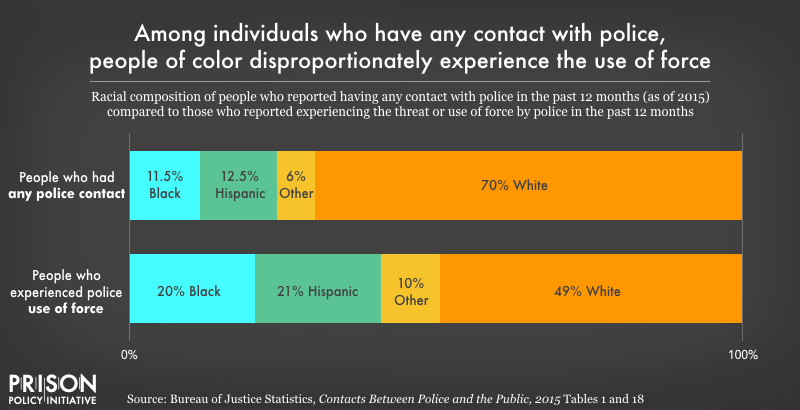 Visualizing The Racial Disparities In Mass Incarceration Prison Policy Initiative
Visualizing The Racial Disparities In Mass Incarceration Prison Policy Initiative
African American children represent 14 of the population.
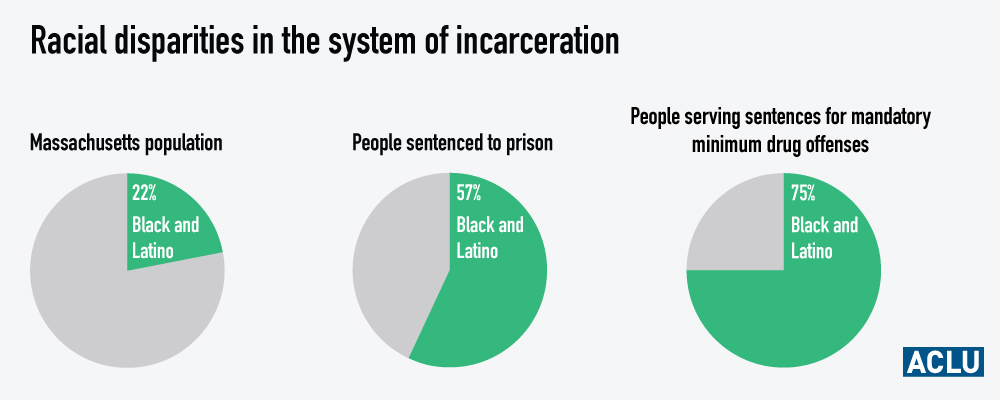
Racial disparities in incarceration rates. The imprisonment rate for African American women is 2x that of white women. In 2010 white men were more likely than African Americans and Hispanics to be imprisoned for property-related crimes 24. Based on a review of research about the causes of racial disparities in incarceration the report concludes that a sizable proportion of racial disparities in prison cannot be explained by criminal offending.
Rather than treating racial disparities as an outcome to be measured we exposed people to real and extreme racial disparities and observed how this drove their support for harsh criminal-justice policies. Indicate whether the statement is true or false. Reason for Crime Racial Disparities.
According to the Pew Research Center relative to white men black men are disproportionately imprisoned by a factor of almost 65. That is because if the criminal justice system is racist then they have a more pleasant explanation for why the prisons are filled not exclusively but disproportionately with black men. Asked Dec 16 2015 in Sociology by Alexis.
The extreme concentration of incarceration rates is compounded by the obviously segregative function of the penal system which often relocates people to far-flung facilities distant from their communities and families. Many on the left would like to believe that racial disparities in incarceration rates are explained by indeed prove the fact that the criminal justice system is racist. On the racial disparity in incarceration rates.
State-by-State Incarceration Rates by RaceEthnicity and the expanded analysis including gender available on our Data toolbox page. In addition to racial and ethnic differences in incarceration rates criminal offenses vary by race and ethnicity Carson and Sabol 2012. Such policies have contributed to unprecedented incarceration rates for Blacks in particular.
During the past few decades punitive crime policies have led to explosive growth in the United States prison population. Nationwide Latinos are imprisoned at a rate 14 times the rate of whites. Among black and white people the incarceration rate fell from 84-to-1 to.
In my experience American liberals believe that racism in the criminal justice system explains the bulk of that disparity or in any case most of them talk as if they. Moreover the racial composition of the prison predicted rates of petition sign. Racial Disparities in Incarceration Rates Narrowing Study Finds February 27 2018 While there continue to be significant racial disparities in local jail incarceration rates the gap between rates for African Americans and white Americans is narrowing a report.
It would actually be surprising if there were no racial disparities in incarceration rates since there are marked racial disparities in illegitimacy rates and there is a high correlation between getting into trouble with the law and other bad social outcomes and growing up in a home without a father. Such policies have contributed to unprecedented incarceration rates for Blacks in particular. Nationwide African American children represent 32 of children who are arrested 42 of children who are detained and 52 of children whose cases are judicially waived to criminal court.
We have seen that steep racial and class disparities in incarceration have produced a generation of social outliers whose collective experience is wholly different from the rest of American society. In this article we consider an unexamined relationship between racial disparities and policy reform. Racial disparities in rates of incarceration affect men but not women.
Racial Disparities in Incarceration 1951 the less-Black condition signed the petition only 2727 of participants in the more-Black condition signed 21 χ N 62 389 p 049 see Fig. During that 16-year period the ratio of Blacks to whites in state prisons fell from more than eight-to-one to five-to-one. Targeted interventions are necessary to close the gap and bring the United States up to par with other developed countries.
The report notes that racial disparities within the federal prison population also declined but by a smaller margin. In this article we consider an unexamined relationship between racial disparities and policy reform. Answered Dec 16 2015 by Reckless.
In fact experts estimate that infant mortality rates today would be 78 percent lower and that disparities between black and white women would be 15 percent smaller if incarceration rates had remained at 1970s levels. Answered Dec 16 2015.
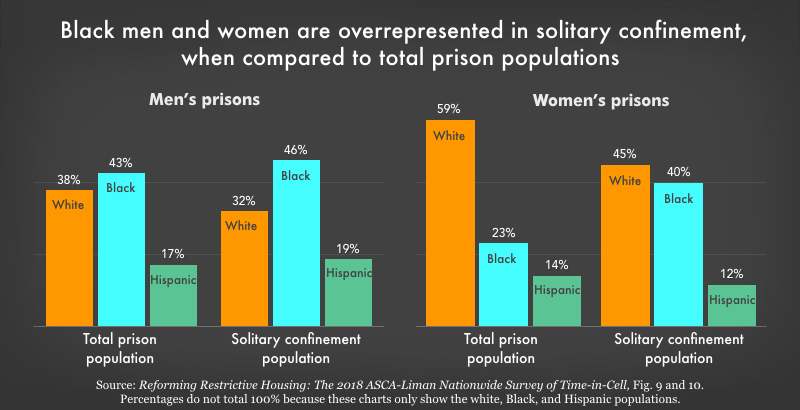 Visualizing The Racial Disparities In Mass Incarceration Prison Policy Initiative
Visualizing The Racial Disparities In Mass Incarceration Prison Policy Initiative
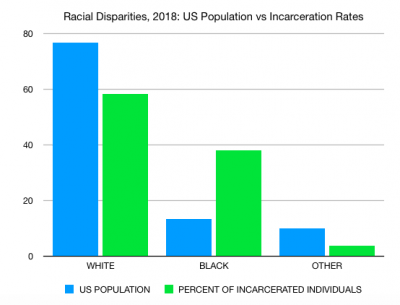 Racial Disparities In Us Prisons Vs Us Population Mathematics Of Sustainability
Racial Disparities In Us Prisons Vs Us Population Mathematics Of Sustainability
 To Fix Racial Disparities Legislators Must Repeal Mandatory Minimums And Address Race Aclu Massachusetts
To Fix Racial Disparities Legislators Must Repeal Mandatory Minimums And Address Race Aclu Massachusetts
 Black Disparities In Youth Incarceration The Sentencing Project
Black Disparities In Youth Incarceration The Sentencing Project
 Racial Disparities In Incarceration And Coronavirus Fwd Us
Racial Disparities In Incarceration And Coronavirus Fwd Us
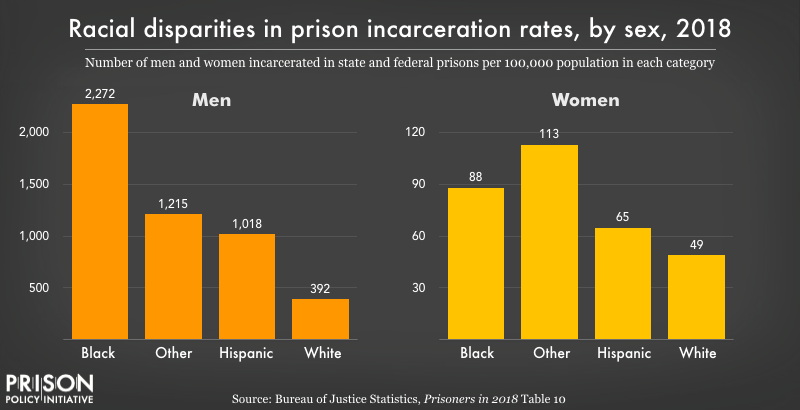 Visualizing The Racial Disparities In Mass Incarceration Prison Policy Initiative
Visualizing The Racial Disparities In Mass Incarceration Prison Policy Initiative
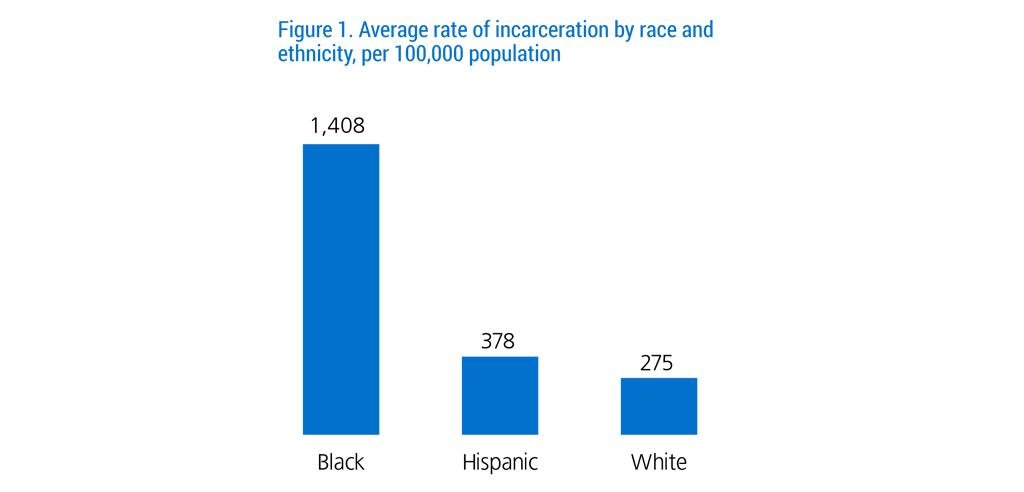 Study Finds Racial Disparities In Incarceration Persist
Study Finds Racial Disparities In Incarceration Persist
 Racial Justice The Sentencing Project
Racial Justice The Sentencing Project
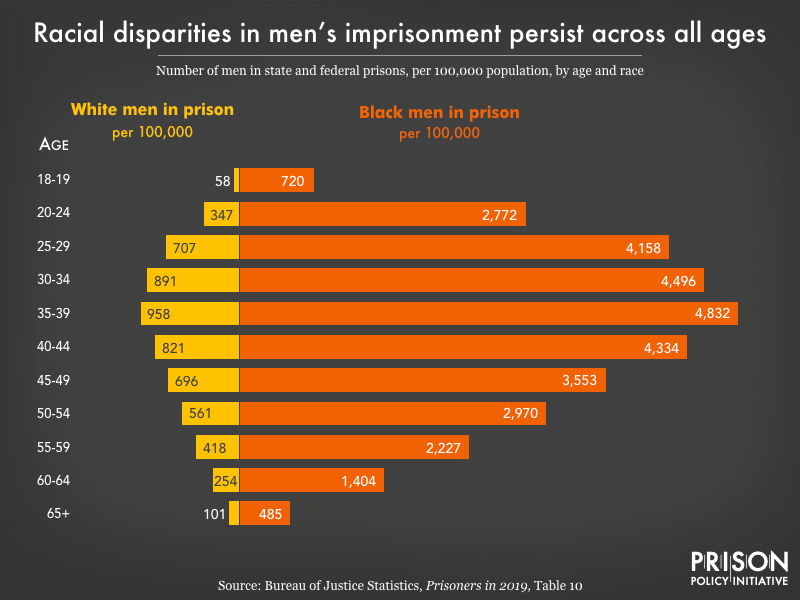 New Bjs Data Prison Incarceration Rates Inch Down But Racial Equity And Real Decarceration Still Decades Away Prison Policy Initiative
New Bjs Data Prison Incarceration Rates Inch Down But Racial Equity And Real Decarceration Still Decades Away Prison Policy Initiative
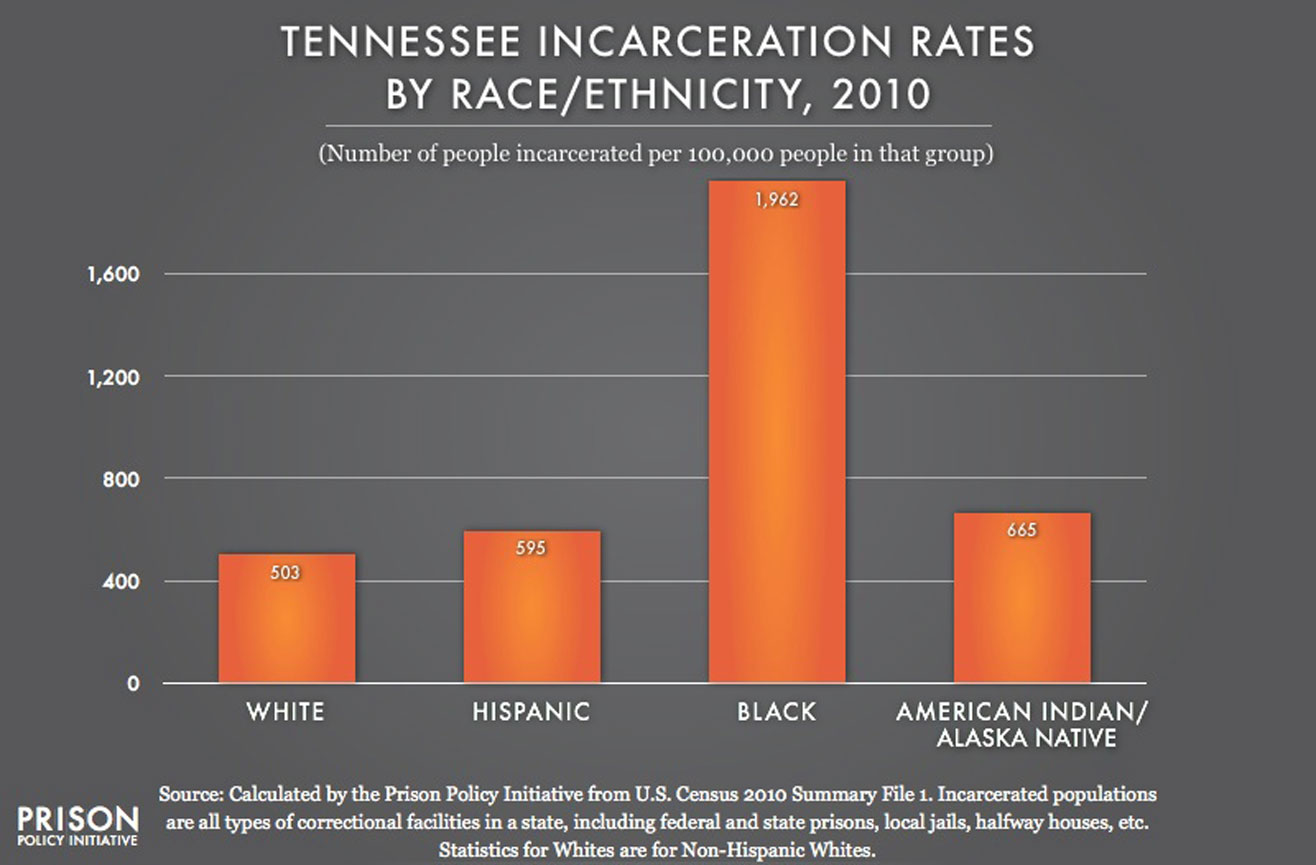 Stark Racial Disparities Continue To This Day States Of Incarceration
Stark Racial Disparities Continue To This Day States Of Incarceration
 Mass Incarceration Stress And Black Infant Mortality Center For American Progress
Mass Incarceration Stress And Black Infant Mortality Center For American Progress
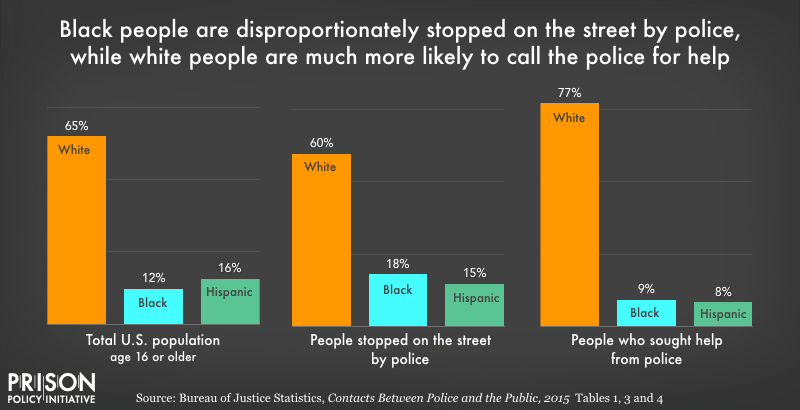 Visualizing The Racial Disparities In Mass Incarceration Prison Policy Initiative
Visualizing The Racial Disparities In Mass Incarceration Prison Policy Initiative
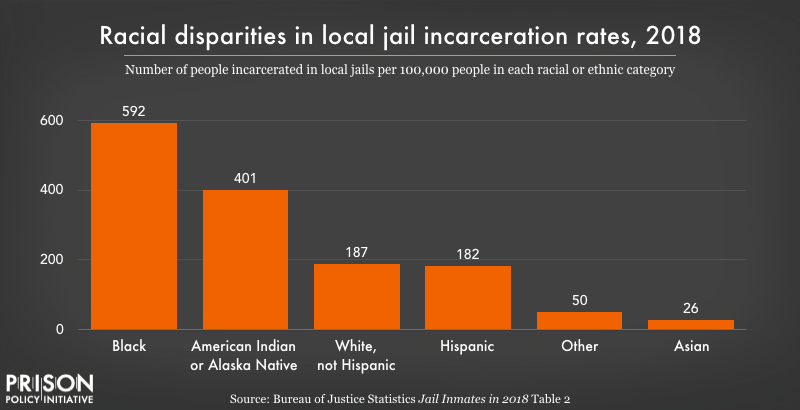 Visualizing The Racial Disparities In Mass Incarceration Prison Policy Initiative
Visualizing The Racial Disparities In Mass Incarceration Prison Policy Initiative
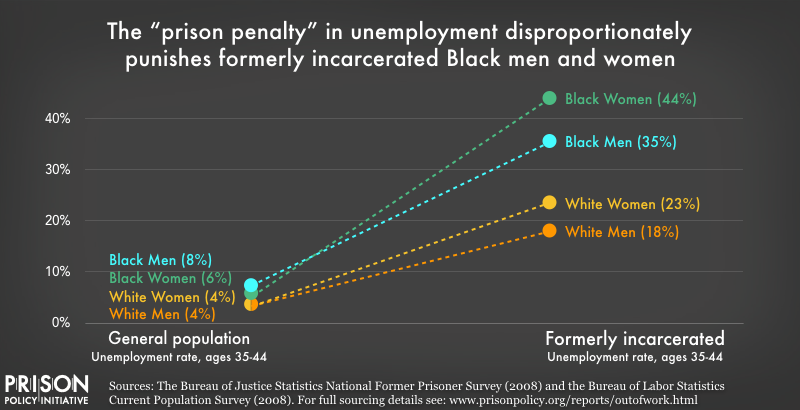 Visualizing The Racial Disparities In Mass Incarceration Prison Policy Initiative
Visualizing The Racial Disparities In Mass Incarceration Prison Policy Initiative
Comments
Post a Comment